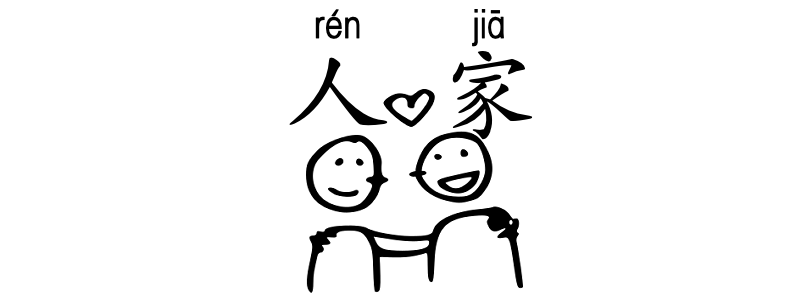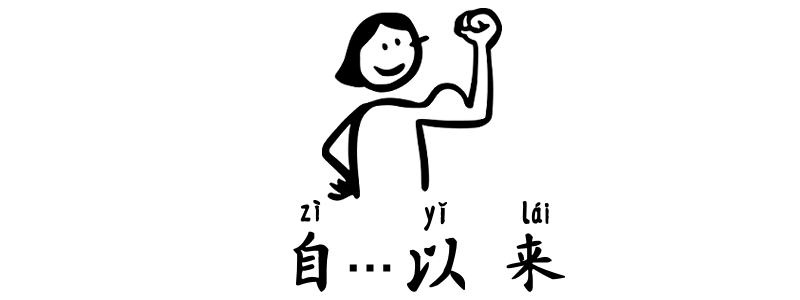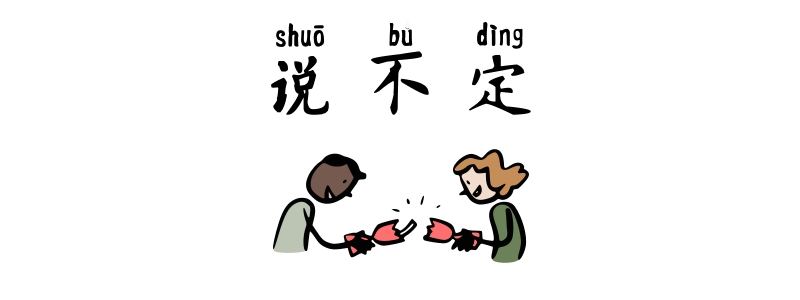Grammar Point:In Chinese, the phrases “在 zài… 方面 fāngmiàn”, “在 zài… 上 shàng”, “在 zài… 中 zhōng”, and “在 zài… 下 xià” are often used to introduce topics or specify aspects of a discussion. Structure 在 zài… 方面 fāngmiàn This phrase is used to talk about specific aspects or fields. It can be translated as…
Category: HSK 4
Generally Speaking in Chinese
Grammar Point:“Generally speaking” in Chinese can be expressed as 一般來說来说 yìbānláishuō. Examples 一般來說yìbānláishuō, 早餐zǎocān吃chī雞蛋jīdàn會huì讓ràng你nǐ一yì整天zhěngtiān都dōu有yǒu精神jīngshén一般来说yìbānláishuō, 早餐zǎocān吃chī鸡蛋jīdàn会huì让ràng你nǐ一yì整天zhěngtiān都dōu有yǒu精神jīngshénGenerally speaking, eating eggs for breakfast will keep you energized all day. 一般來說yìbānláishuō, 貓咪māomī比bǐ狗狗gǒugǒu更gèng喜歡xǐhuān獨處dúchù, 但dàn我wǒ的de狗gǒu不bú太tài一樣yíyàng一般来说yìbānláishuō, 猫梦māomèng比bǐ狗狗gǒugǒu更gèng喜欢xǐhuan独处dúchù, 但dàn我wǒ的de狗gǒu不bú太tài一样yíyàngGenerally speaking, cats prefer to be alone more than dogs do, but my dog is different. 一般來說yìbānláishuō, 我wǒ會huì在zài網站wǎngzhàn上shàng更新gèngxīn一些yìxiē中文zhōngwén練習liànxí材料cáiliào, 幫助bāngzhù學生xuéshēng準備zhǔnbèiHSK 考試kǎoshì一般来说yìbānláishuō, 我wǒ会huì在zài网站wǎngzhàn上shàng更新gèngxīn一些yìxiē中文zhōngwén练习liànxí材料cáiliào, 帮助bāngzhù学生xuéshēng准备zhǔnbèiHSK 考试kǎoshìGenerally speaking, I…
Chinese Referring to People – 人家 rénjiā
Grammar Point:In Chinese, the term 人家 rénjiā is a versatile pronoun that can be used in various contexts to refer to different people. Referring to Someone Else 人家rénjiā都dōu說shuō沒關係méiguānxī了le, 你nǐ就jiù別bié難過nánguò了le人家rénjiā都dōu说shuō没关系méiguānxi了le, 你nǐ就jiù别bié难过nánguò了lePeople are saying it’s okay, so don’t be upset. 你nǐ看kàn人家rénjiā的de男朋友nánpéngyǒu都dōu會huì送sòng禮物lǐwù, 你nǐ都dōu不會búhuì你nǐ看kàn人家rénjiā的de男朋友nánpéngyou都dōu会huì送sòng礼物lǐwù, 你nǐ都dōu不会búhuìLook, everyone else’s boyfriends give them gifts, but you never do. 人家rénjiā愛ài怎麼zěnme想xiǎng就jiù怎麼zěnme想xiǎng, 你nǐ不用búyòng在意zàiyì人家rénjiā爱ài怎么zěnme想xiǎng就jiù怎么zěnme想xiǎng, 你nǐ不用búyòng在意zàiyìPeople will…
Ever since – zì…yǐlái
Grammar Point:The Chinese grammar structure 自 zì… 以來来 yǐlái is used to express “ever since” in English. This structure indicates that something has been happening continuously from a certain point in the past up to the present. Structure Zì + Time or Event + yǐlái Compared with just using 自 zì, 從从 cóng, or 自從从…
“And” in Chinese – 以及 yǐjí & 并 bìng
Grammar Point:In Chinese, 以及 yǐjí and 並并 bìng can be translated as “and,” but they link to slightly different elements. 以及 yǐjí This is a more formal way to express “and,” often used in written or formal contexts. It is used to connect two or more noun phrases. It is also possible to drop 以…
“Otherwise” in Chinese – fǒuzé
Grammar Point:The Chinese word 否則则 fǒuzé means “otherwise.” Unlike 要不然 yàoburán, it carries a slight sense of threat or warning, as it implies that if a certain action is not taken or condition is not met, there will be consequences. Structure Condition + fǒuzé + Result 你nǐ先xiān做zuò完wán作業zuòyè,否則fǒuzé別bié想xiǎng看kàn電視diànshì你nǐ先xiān做zuò完wán作业zuòyè,否则fǒuzé别bié想xiǎng看kàn电视diànshìFinish your homework first, otherwise, forget about watching TV….
Chinese “consists of” – 由 yóu…组成 zǔchéng
Grammar Point:The Chinese phrase 由…組组成 yóu…zǔchéng is used to describe the composition or make-up of something. Structure S + yóu + Something + zǔchéng The 是 shì …的 de structure can be added to emphasize the composition or make-up of something in this grammar. 這zhè本běn書shū由yóu五wǔ個ge部分bùfèn組成zǔchéng这zhè本běn书shū由yóu五wǔ个ge部分bùfen组成zǔchéngThis book is composed of five parts. 這zhè個ge詞cí是shì由yóu兩liǎng個ge字zì組成zǔchéng的de这zhè个ge词cí是shì由yóu两liǎng个ge字zì组成zǔchéng的deThis word consists of…
“Maybe” in Chinese – shuōbudìng
Grammar Point:說说不定 shuōbudìng is an idiom in Chinese that means “perhaps” or “maybe.” It is used to indicate uncertainty or possibility. Structure shuōbudìng + V 說不定shuōbudìng他們tāmen已經yǐjīng到dào了le说不定shuōbudìng他们tāmen已经yǐjīng到dào了leMaybe they have arrived. 明天míngtiān說不定shuōbudìng會huì下雨xiàyǔ,你nǐ最好zuìhǎo想xiǎng一個yíge備案bèiàn明天míngtiān说不定shuōbudìng会huì下雨xiàyǔ,你nǐ最好zuìhǎo想xiǎng一个yíge备案bèiànIt might rain tomorrow, so you’d better have a backup plan. 這zhè件jiàn事shì說不定shuōbudìng還hái會huì改變gǎibiàn这zhè件jiàn事shì说不定shuōbudìng还hái会huì改变gǎibiànThis matter might still change. 說不定shuōbudìng下xià個ge億萬富翁yìwànfùwēng就是jiùshì你nǐ说不定shuōbudìng下xià个ge亿万富翁yìwànfùwēng就是jiùshì你nǐYou might be the next millionaire. 晚餐wǎncān別bié等děng我wǒ, 我wǒ說不定shuōbudìng趕gǎn不bù回來huílái晚餐wǎncān别bié等děng我wǒ, 我wǒ说不定shuōbudìng赶gǎn不bù回来huíláiDon’t wait…
“As” in Chinese – zuòwéi
Grammar Point:In Chinese grammar, 作為为 zuòwéi is used as a preposition to indicate the role, function, or identity of something or someone in a particular context. It is often translated as “as” or “in the capacity of” in English. Structure Zuòwéi + Noun (character or role) 作為zuòwéi一名yìmíng老師lǎoshī, 他tā擁有yōngyǒu豐富fēngfù的de教學jiāoxué經驗jīngyàn作为zuòwéi一名yìmíng老师lǎoshī, 他tā拥有yǒngyǒu丰富fēngfù的de教学jiāoxué经验jīngyànAs a teacher, he has rich teaching…
“Even” in Chinese 1 – 甚至 shènzhì
Grammar Point:The Chinese word 甚至 shènzhì means “even” or “go so far as to.” It is used to indicate that something is true to a surprising or extreme degree, often used to emphasize a point. Structure 甚至 shènzhì is commonly used together with 連连 lián…都 dōu/ 也 yě… to emphasize the extent or degree of…









